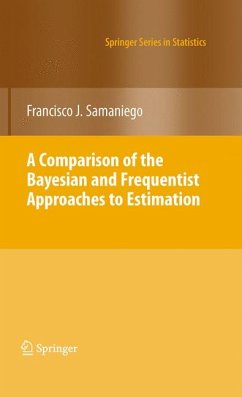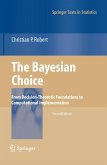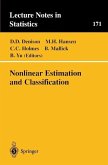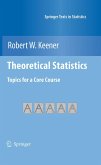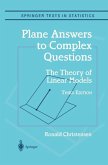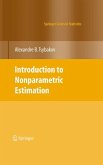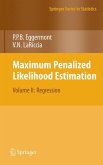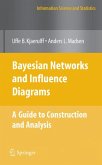Dieser Download kann aus rechtlichen Gründen nur mit Rechnungsadresse in A, B, BG, CY, CZ, D, DK, EW, E, FIN, F, GR, HR, H, IRL, I, LT, L, LR, M, NL, PL, P, R, S, SLO, SK ausgeliefert werden.
Hinweis: Dieser Artikel kann nur an eine deutsche Lieferadresse ausgeliefert werden.
"Intended to be broad, including an advanced undergraduate audience ... and the book would more likely benefit more senior readers. A Comparison is pleasant to read, written in a congenial style ... and the decision-theoretic background is well-set. Its self-declared purpose ... is commendable in that an objective comparison of Bayesian versus frequentist estimators should appeal to anyone." (Christian P. Robert, International Statistical Review, Vol. 79 (1), 2011)
"Samaniego presents a unique approach to comparing the Bayesian and frequentist schools of thought. ... provides extensive overviews of the decision-theoretic framework, the frequentist approach to estimation, and the Bayesian approach to estimation. I found the coverage of these topics strong and the writing interesting. ... I can see A Comparison of the Bayesian and Frequentist Approaches to Estimation serving the needs of a special topics course or serving nicely as a reference book for a more general course on Bayesian statistics or mathematical statistics." (Andrew Neath, Journal of the American Statistical Association, Vol. 106 (496), December, 2011)
"The main theme of the monograph is 'comparative statistical inference'. The author provides ideas and examples which can assist a statistician in comparing the performance one can expect from using either Bayesian or classical solutions in estimation problems. ... contains a summary and synthesis of the main themes of the monograph and provides a general set of conclusions and recommendations regarding the types of problems in which the Bayesian approach to estimation stands to provide reliable and preferred solutions ... ." (Alicja Jokiel-Rokita, Mathematical Reviews, Issue 2011 g)
"Francisco J. Samaniego's A Comparison of the Bayesian and Frequentist Approaches to Estimation is an extremely well written book. Filled with amusing wordplay and clear descriptions, the book lays out acase for both Bayesian and frequentist estimators. ... easily approachable to graduate students and has exercises following each section ... . an engaging, quick read that acquaints the reader with ways to produce and judge estimators for many problems. ... a nice overview for those seeking a framework for comparison of these estimators." (Elizabeth Ben Ward, SIAM Review, Vol. 54 (1), 2012)
"Samaniego explores some of the traditional approaches to comparing Bayes and frequentist estimators. ... He includes appropriate references for the reader who wishes to study the problems in more detail than given in the book. ... This book is very worthwhile because it will stimulate research, thought, and discussion about its subject matter and related issues. In conclusion Samaniego invites the reader to: 'Add your imprint to this work! You are cordially and enthusiastically invited to the party.'" (Marvin H. J. Gruber, Technometrics, Vol. 53 (3), August, 2011)
"The book under review is addressed to the audience of academics and practitioners who are open to using either frequentist or Bayesian methods in the considered problems ... . It will be appropriate as a text either for an advanced undergraduate course or for a graduate-level course or seminar. The book consists of 12 chapters and an Appendix." (Joseph Melamed, Zentralblatt MATH, Vol. 1204, 2011)

